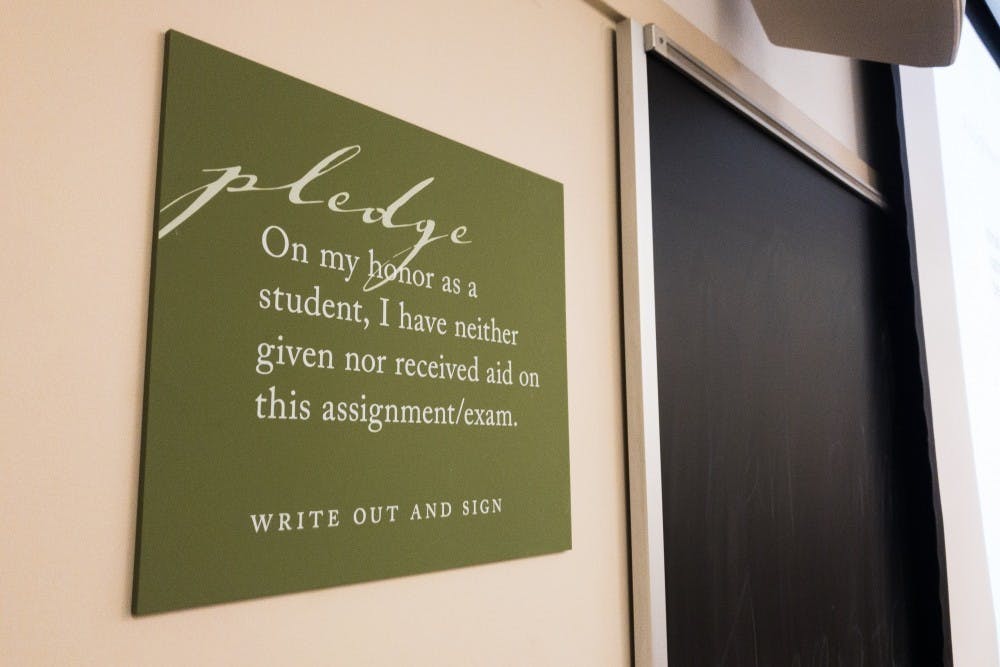Honor held “a casual discussion of Honor in our Community of Trust” Wednesday evening on the South Lawn. The event allowed people to hear from the Honor Executive Committee, leaders of multicultural organizations, student government leaders and other members of Honor.
Approximately 60 people attended Wednesday’s event, which had three objectives — to update the community on the state of the Honor system, to listen to community concerns and generate new measures for the committee to consider and to start a casual discussion and allow people to talk with some of their Honor representatives.
Honor hopes this will join Honor and community perspectives and facilitate interaction between the two.
This event kicks off Honor’s Popular Assembly Weekend, a series of events by Honor to educate students and promote their participation in the committee. Other events include an open “State of the Honor System” debate in Jefferson Hall Thursday at 6 p.m. and an open invitation to the Committee’s meeting held Sunday in Newcomb 480 at 8 p.m.
This is the third ever Popular Assembly, which occurs biannually in an effort to increase education about Honor and receive feedback from students and faculty.
Students who attended the event said they left knowing more about Honor and were thankful for the free dinner.
The questions centered around the most common Honor offense — cheating, which was the offense committed in 65 percent of sanctioned Honor cases since 2000 — and how Honor handles other offenses — such as owning a fake ID. The discussion also described conscientious retractions, in which a student may report their own Honor Offense in order to make amends and remain within the Community of Trust.
A series of panels were set up around the tables documenting the history of Honor and how it works. They also highlighted high profile investigations such as the Coke Case of 1971, which initiated reform of the single-sanction Honor system after a first-year student was nearly expelled for stealing soda but, and the Bloomfield Cases of 2001, which assessed the intersection of cheating and plagiarism with growing technology use.
The panels also emphasized diversity within Honor and the Committee’s actions since women were first admitted to the University.
Mary Beth Barksdale, a fourth-year in the College and Honor’s vice chair for education, outlined the educational goals of the upcoming Popular Assembly events.
“Education is the way that Honor interacts with more than 99 percent of the University,” Barksdale said. “The vast majority of students … may never actually interact with us. So really instilling the values of Honor, this honesty, integrity and generosity … that we try to build in students is the purpose of education here, and it's the purpose of outreach as well.”
Barksdale said that ensuring students are aware of the Honor system’s role at the University is crucial to effective student self-governance.
“The reason that we have all of these posters up here with different stories about the Honor system — how it came to be, how it changed over time — is to teach people about the system and give them ownership over it,” Barksdale said. “You can't have ownership over something you know nothing about. So education is the absolute purpose of that.”







